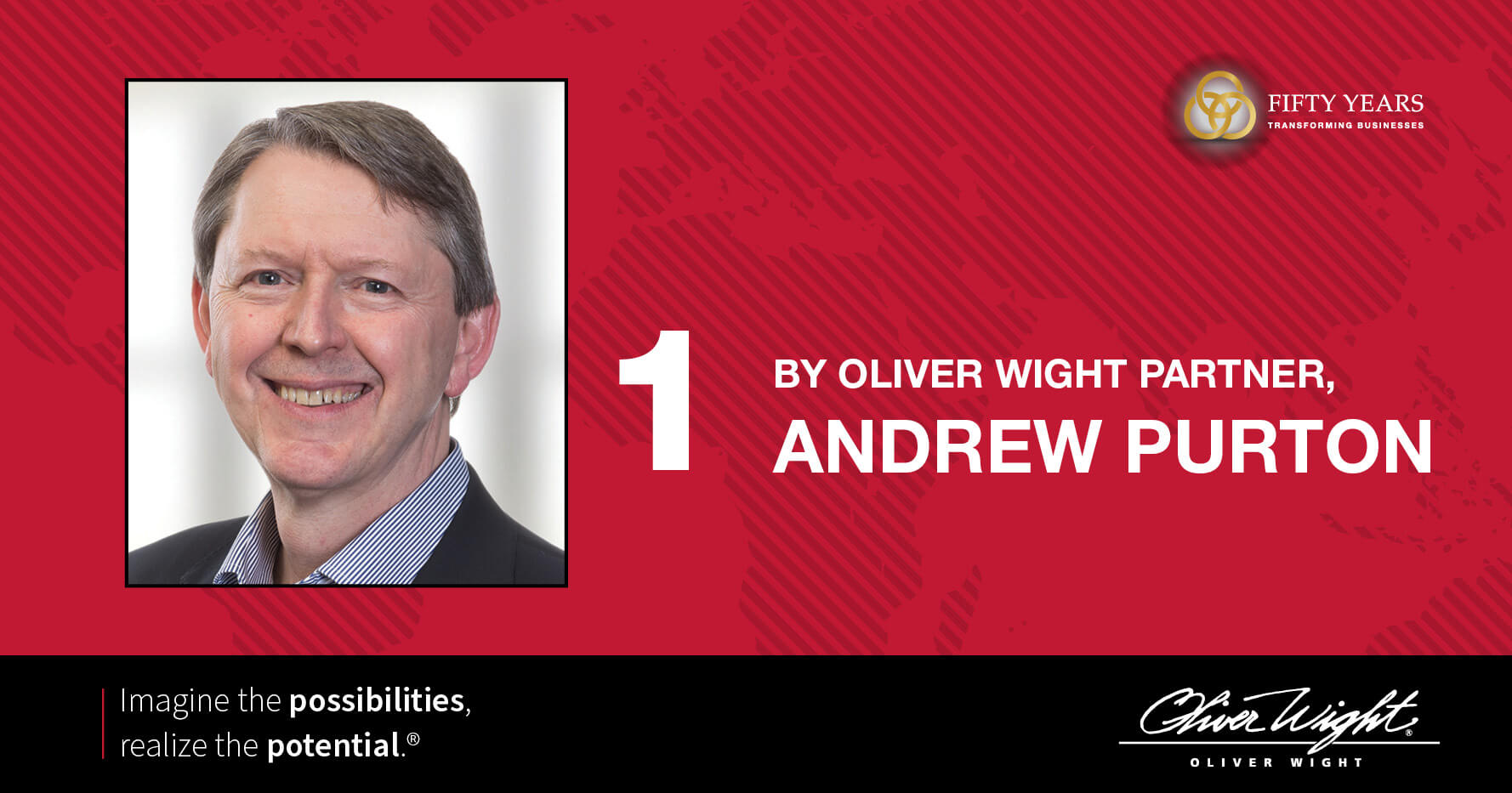Reflections on 30 years of driving business improvements with Oliver Wight: Part 1
19 May 2020
Blog

By Oliver Wight Partner, Andrew Purton
It seems implausible to me that I have now completed three decades working with Oliver Wight, educating, facilitating, and coaching businesses across the world to deploy business transformation programmes. The time has flown, and the experiences have been as broad as the types of clients have been diverse. I have been an Oliver Wight Partner since 1989, President of Oliver Wight EAME from 2000 to 2008, and Chairman of the Board of Oliver Wight International from 2000 to 2015. I have seen a lot of change over that time, both in the challenges that clients are facing and in how we respond to them with our progressive thinking and constant innovation.
From time to time I am questioned about the past as people seem interested to learn how things have changed over time. So, I have taken some of the questions I am most frequently asked and reflected on my experience, which you can read about in this three part blog series.
How many clients have you worked with at Oliver Wight EAME?
This is a difficult question and quite frankly I have stopped counting. The answer would have to be several hundred spanning virtually all industries – this is one of the benefits of working within Oliver Wight, the support we offer is applicable to all businesses and so we are constantly operating with clients across multiple sectors. Many client relationships have been sustained for years, even decades in some cases, while others are only brief encounters. More important than the number of clients is the number of individual connections and friends that I have made over the years, many of which have kept in touch as they have moved to different companies through their careers.
What were the most common client challenges when you started at Oliver Wight EAME compared to today?
When I started with Oliver Wight our prime activity was helping clients to succeed with Manufacturing Resource Planning and to achieve our coveted Class A award. This accreditation recognised the client’s step-change improvement in understanding how an integrated business needs to operate, process capability, people dynamics and behaviours, effective use of system functionality, and – crucially - step-change business performance across multiple criteria. It was a huge celebration for our clients when they achieved this major milestone, and within Oliver Wight we celebrated with pride and satisfaction when our clients succeeded, having guided them on their journey for typically two to three years. In fact, this was our principle KPI: client success was measured by the achievement of the Class A accreditation.
Back then, the crucial issues were getting clients to think and operate cross-functionally and to understand the established and emerging best-practices in operating an integrated, rather than a functionally siloed, business. As with all our business transformation programmes, we work with a critical mass of key influencers at both executive and practitioner level to mobilise a wave of change teams who would design and own the new ways of working and become the ‘agents of change’ in deploying these practices in their work place. Education activity to transfer knowledge of best-practice has always been a crucial enabler and fundamental to initiating a programme. In the past we ventured into a greater level of detail than we typically undertake today since the scope of MRPII covered S&OP and links to business planning, demand management, master planning, material and capacity planning, shop floor control and supplier management. Moreover, we needed to educate on the appropriate application of traditional MRPII techniques vs the emerging JIT/ Lean and structured problem-solving methodologies.
Education was conducted through public workshops, delivered at hotels to multiple clients that started with an overview programme five days long! This was followed by more detailed education for specific design teams and we offered a considerable portfolio of detailed courses. Hence as an Oliver Wight Associate, we needed to be an excellent generalist in our subject matter but also an expert in several of the disciplines.
Today our focus is primarily on Integrated Business Planning particularly for clients with complex matrix organizational designs but also for those who want an integrated supply chain emphasis. We have less focus on detailed planning and control, however, we often find that detailed planning issues prevail within a client business and so an operational planning and control programme may become the next step in the client journey. These days we primarily deliver our programmes through private workshops for individual clients. This ensures our ‘critical mass of key influencers’ hear the message together and they can accelerate start-up of said programme. As we did in the past, we provide coaching support in completion of the design phase and throughout the deployment phase until new practices have become established, the business transformed, and benefits delivered.
Don’t miss part two of Andrew’s blog coming soon, where he will explore some of the biggest changes in the world of business over the past 30 years and discuss how Oliver Wight has evolved to tackle client challenges.
Click here to connect with Andrew on LinkedIn.
Author(s)
-
